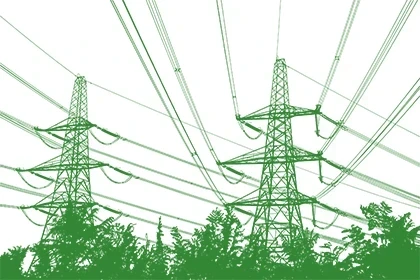Pennsylvania’s Yaw Bill

In a significant move for Pennsylvania’s energy sector, State Senator Gene Yaw has introduced a transformative piece of legislation aimed at modernizing the state's approach to power plant development and capacity management. The bill, which has been the subject of considerable discussion, proposes the establishment of a new loan fund to support power plant construction and renovation projects. This initiative is designed to address several key issues facing the state's energy infrastructure, including permitting delays, capacity challenges, and the evolving dynamics of the regional power grid.
Addressing Permitting Bottlenecks
One of the primary objectives of the Yaw Bill is to streamline the permitting process for new power plants and upgrades to existing facilities. Currently, Pennsylvania's power plant permitting process can be notoriously slow and cumbersome, often leading to significant delays that impact both project timelines and overall costs. By creating a dedicated loan fund, the bill aims to expedite these processes, making it easier for developers to secure the necessary approvals and move forward with construction.
The proposed loan fund is expected to provide financial assistance to power plant developers, helping to cover costs associated with regulatory compliance and other permitting-related expenses. This could significantly reduce the financial burden on developers and encourage more investment in the state's energy infrastructure.
Enhancing Capacity Management
Another critical component of the Yaw Bill is its focus on improving capacity management within Pennsylvania’s power grid. The bill seeks to address the challenges posed by fluctuating energy demands and the need for a more reliable and resilient power supply. By facilitating the construction of new power plants and upgrades to existing ones, the legislation aims to bolster the state’s energy capacity, ensuring that it can meet both current and future demands.
The bill also includes provisions for better integration of renewable energy sources into the grid. As Pennsylvania continues to transition towards cleaner energy, managing the balance between traditional and renewable power sources becomes increasingly important. The loan fund will support projects that enhance the grid’s ability to accommodate a diverse mix of energy sources, contributing to a more stable and sustainable energy system.
Regional Implications and PJM Capacity Markets
The Yaw Bill’s impact extends beyond Pennsylvania, influencing the broader regional power landscape managed by the PJM Interconnection. PJM oversees the electricity grid and market operations across multiple states, including Pennsylvania. As such, changes in Pennsylvania’s energy infrastructure can have significant repercussions for the entire region.
By increasing Pennsylvania’s power generation capacity, the bill could help stabilize regional capacity markets and reduce the risk of shortages. This is particularly relevant in the context of PJM’s capacity market, which is designed to ensure that there is sufficient generation capacity available to meet peak demand periods. The loan fund could help Pennsylvania meet its obligations within the PJM market, contributing to a more balanced and reliable regional power system.
Economic and Environmental Considerations
The economic implications of the Yaw Bill are also noteworthy. By facilitating investment in power plant development, the legislation has the potential to create jobs, stimulate economic activity, and attract new investment to Pennsylvania. The construction and operation of new power plants can generate significant employment opportunities, both directly and indirectly, benefiting local communities and contributing to the state’s overall economic growth.
On the environmental front, the bill’s emphasis on integrating renewable energy sources aligns with broader efforts to reduce greenhouse gas emissions and combat climate change. By supporting projects that incorporate clean energy technologies, the legislation supports Pennsylvania’s goals for environmental sustainability and contributes to a more eco-friendly energy mix.
Looking Ahead
As the Yaw Bill progresses through the legislative process, its potential to reshape Pennsylvania’s energy landscape becomes increasingly apparent. By addressing permitting delays, enhancing capacity management, and supporting regional power market stability, the bill represents a forward-looking approach to energy infrastructure development. Its success could serve as a model for other states grappling with similar challenges, paving the way for more efficient and sustainable energy systems across the nation.
In summary, the Yaw Bill offers a promising avenue for modernizing Pennsylvania’s energy sector, fostering economic growth, and advancing environmental goals. As stakeholders continue to evaluate and discuss its provisions, the legislation stands as a testament to the ongoing evolution of energy policy in the face of changing technological and market dynamics.








